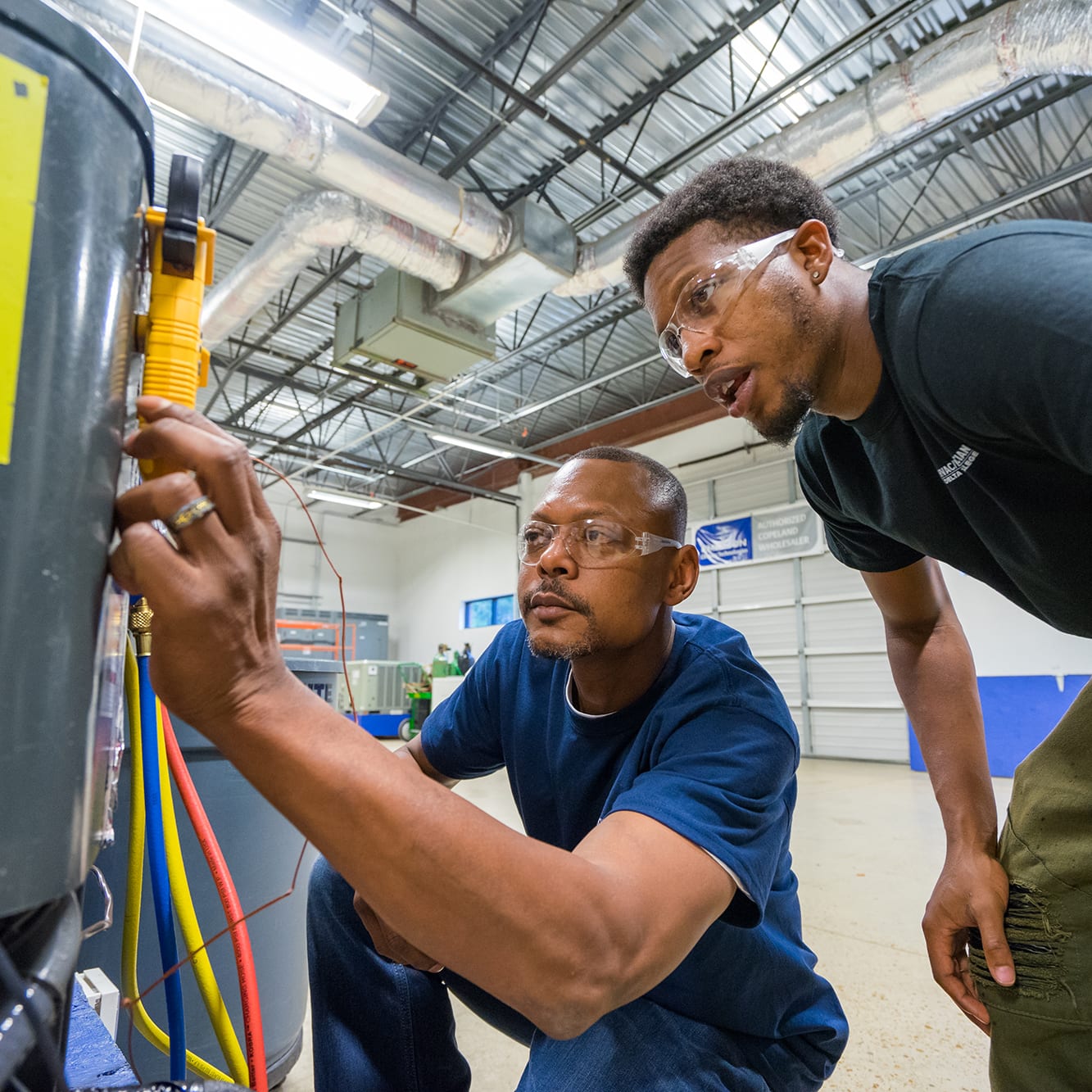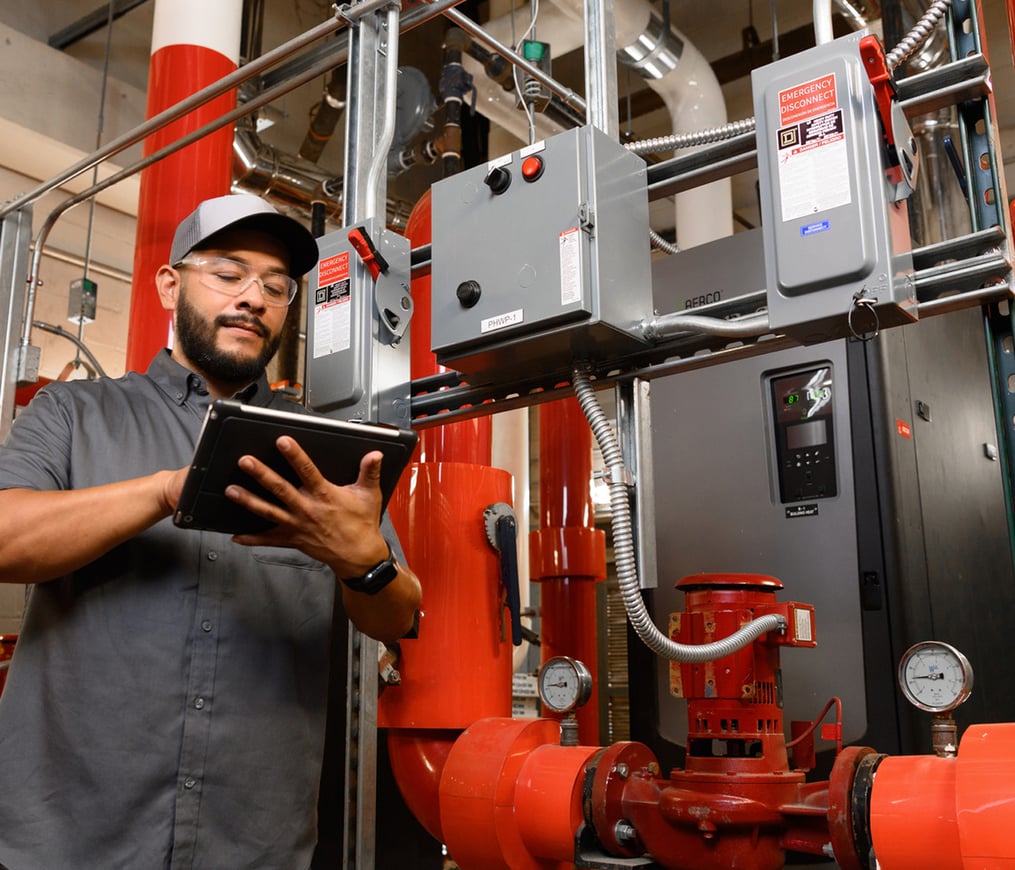A Thorough Take A Look At HVAC Solutions and Their Effect On Power Performance and Cost Cost Savings
With technical improvements like wise thermostats and high-efficiency elements, the capacity for optimizing system efficiency is substantial. As we check out the elaborate relationship in between A/c systems and operational prices, including the shift in the direction of ecologically friendly choices, the concern occurs: how can these approaches be efficiently implemented to maximize both economic and environmental benefits?

Value of HVAC Systems
a/c systems are an essential part of contemporary buildings, playing an important role in maintaining healthy and comfy indoor atmospheres. These systems, including air flow, air, and heating conditioning, are necessary for controling temperature, moisture, and air high quality, thus making sure the wellness of residents. Effective HVAC systems add substantially to producing an optimal interior climate, which is critical for both commercial and property spaces.
In business buildings, HVAC systems are indispensable to supplying a productive and safe atmosphere. By regulating interior climate problems, these systems aid protect against the development of mold and the spread of air-borne pollutants, thus safeguarding the health and wellness of customers and workers. In addition, in domestic settings, HVAC systems boost living conditions by supplying constant thermal comfort and improving interior air quality, which is crucial for total health.
Additionally, the layout and maintenance of cooling and heating systems have a direct effect on power consumption and functional costs. Properly designed and preserved systems can considerably decrease energy usage, bring about decreased utility costs and a smaller carbon impact. The efficiency of these systems thus plays an essential function in promoting sustainability and power conservation within structures, highlighting their value in the modern building landscape.
Advancements in Cooling And Heating Technology
Development in heating and cooling innovation is transforming the method buildings manage indoor environments, introducing a new age of performance and control. Current innovations have actually concentrated on optimizing power usage while boosting user convenience. One remarkable growth is the combination of wise thermostats, which utilize expert system to discover occupancy patterns and readjust temperatures accordingly, reducing unneeded energy use.
Variable Refrigerant Flow (VRF) systems represent another significant jump ahead. These systems enable specific temperature level control in different zones of a structure, improving comfort and reducing power waste. VRF modern technology is specifically helpful for big business rooms, supplying adaptability and scalability.
Furthermore, the arrival of Internet of Points (IoT) gadgets has actually transformed a/c systems right into interconnected networks with the ability of real-time data collection and analysis. This connectivity makes it possible for anticipating maintenance, making sure systems run at peak effectiveness and lessening unanticipated downtime.
Additionally, developments in materials and layout, such as making use of high-efficiency coils and compressors, have boosted general system efficiency - Heating Contractor. The adoption of eco-friendly refrigerants likewise emphasizes the market's dedication to sustainability
These technical advancements are pivotal in minimizing functional expenses and ecological influence, setting new criteria for developing climate administration.
A/c Upkeep and Effectiveness
Guaranteeing optimum performance of cooling and heating systems extends beyond technical innovations; it additionally rests on efficient maintenance practices. Regular maintenance is vital for sustaining effectiveness, reducing energy usage, and expanding the life expectancy of HVAC systems. The main objective is to make certain that all elements operate at their peak potential, consequently reducing power waste and maintaining constant interior convenience levels.
Regular maintenance tasks, such as cleaning or replacing air filters, examining refrigerant degrees, and inspecting ductwork for leaks, are crucial for protecting against unnecessary strain on the system. Filthy or clogged filters can obstruct air movement, triggering the system to function more challenging and consume more energy. Furthermore, insufficient cooling agent levels can decrease cooling down efficiency, resulting in higher functional prices.
Furthermore, regular evaluations by certified specialists can recognize possible issues before they escalate into costly repair services or system failures. These assessments commonly include examining electrical links, calibrating thermostats, and making sure the total stability of the cooling and heating system. By dealing with minor problems early, property owners and organizations can prevent unexpected breakdowns and enhance energy efficiency.
Cost-efficient Cooling And Heating Solutions
For those aiming to obtain one of the most out of their home heating, air flow, and air conditioning systems without breaking the bank, checking out cost-effective cooling and heating remedies can make a substantial distinction. One immediate procedure is to purchase programmable thermostats, which permit individuals to establish certain temperature levels for various times of the day, optimizing energy use and lowering unnecessary usage. By automating temperature level modifications, homeowners can achieve considerable financial savings on power costs.
Routine maintenance is one more important part of cost-efficient heating and cooling monitoring. Ensuring that filters are cleaned or changed frequently, ductwork is secured, and devices are serviced by specialists can prevent expensive repair services and enhance system longevity. Preventive maintenance not just preserves system effectiveness but additionally assists in preventing unexpected breakdowns that can result in costly emergency repair services.
Additionally, retrofitting existing systems with energy-efficient components, such as variable speed electric motors or high-efficiency compressors, can be a sensible financial investment. These upgrades boost functional efficiency, lower power usage, and can usually be executed at a recommended you read fraction of the price of a complete system substitute.
Environmental Influence Decrease
Minimizing the ecological effect of Cooling and heating systems is essential in today's quest of lasting living. HVAC systems are considerable factors to power consumption, accounting for more virtually 40% of energy use in commercial structures.
Technical developments in HVAC layout and operation, consisting of the assimilation of smart thermostats and energy-efficient warm pumps, are critical in lowering carbon footprints. These developments enable for optimized power use, minimizing waste and enhancing total system efficiency. Furthermore, adopting regular maintenance techniques guarantees a/c systems operate at peak efficiency, more stopping unnecessary power usage.
Furthermore, using eco-friendly cooling agents is vital, as traditional refrigerants, like CFCs and HCFCs, have actually been phased out due to their ozone-depleting buildings. Modern alternatives, such as hydrofluoroolefins (HFOs), deal decreased ecological dangers, aligning with international ecological procedures. By embracing these lasting techniques, cooling and heating solutions can play a transformative function in lowering ecological impacts, promoting energy effectiveness, and fostering an extra lasting future.
Conclusion

Moreover, the style and maintenance of Cooling and heating systems have a informative post straight effect on power consumption and operational expenses. Normal maintenance is crucial for sustaining efficiency, lowering power consumption, and prolonging the life period of Heating and cooling systems. A/c systems are significant factors to energy usage, accounting for nearly 40% of energy use in business structures. Furthermore, adopting regular upkeep techniques ensures Cooling and heating systems run at peak effectiveness, more curtailing unneeded energy intake.
The change to eco friendly HVAC systems additionally promotes and lowers functional expenses sustainability. (Heating Contractor)